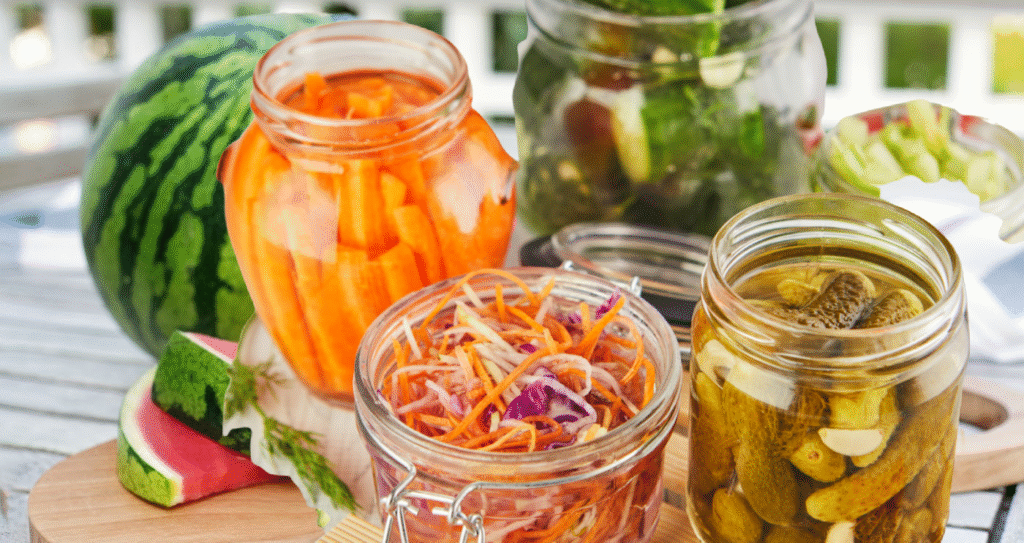Our immune system is our body’s first line of defense against harmful invaders like bacteria, viruses, and other pathogens. A strong immune system keeps us healthy, reducing the chances of falling ill and helping us recover faster when we do. But how can we naturally boost our immunity without relying on medications? The answer lies in simple lifestyle changes and habits that are rooted in nature. Let’s dive into 10 proven ways to strengthen your immune system.
1. Eat a Balanced Diet Rich in Nutrients

What we eat has a direct impact on our immune health. A balanced diet that includes a variety of vitamins and minerals is essential for supporting the immune system. Focus on fresh fruits and vegetables, whole grains, healthy fats, and lean proteins. Nutrients like vitamin C, vitamin D, zinc, and antioxidants play a crucial role in immune function.
For instance, citrus fruits like oranges, lemons, and grapefruits are packed with vitamin C, which is known for its ability to fight infections. Don’t forget about leafy greens, nuts, and seeds, which are rich in zinc—another mineral that strengthens immune responses.
2. Stay Hydrated Throughout the Day

Water is vital for the proper functioning of all our bodily systems, including the immune system. Staying hydrated helps flush out toxins, supports digestion, and maintains cell function. Aim to drink at least 8 glasses of water a day, or more if you’re active or live in a hot climate.
Herbal teas like ginger or green tea can also help boost immunity. These teas are packed with antioxidants and have anti-inflammatory properties that can help your body combat infections.
3. Get Enough Sleep

Sleep is a natural healer. During sleep, the body repairs and rejuvenates itself. Lack of sleep can weaken your immune system, making you more vulnerable to infections. Adults should aim for 7-9 hours of quality sleep each night.
If you’re having trouble sleeping, try creating a bedtime routine. Avoid caffeine in the evening, limit screen time, and create a calm environment to help you wind down.
4. Exercise Regularly

Regular physical activity does wonders for your immune system. Exercise helps improve circulation, reduces stress, and supports the body’s ability to fight off illness. Whether it’s a brisk walk, a workout at the gym, or even yoga, staying active strengthens your immune defenses.
Studies have shown that moderate exercise can actually enhance immune function, while intense or overexertion can have the opposite effect. So, aim for consistency rather than pushing yourself too hard.
5. Manage Stress Effectively

Chronic stress is one of the biggest culprits in weakening the immune system. When we’re stressed, our bodies release stress hormones like cortisol, which can suppress immune function over time. That’s why managing stress is so important for your immunity.
Try incorporating stress-reducing practices into your daily routine, such as meditation, deep breathing exercises, or simply taking time to relax and unwind. Spending time in nature or enjoying hobbies you love can also lower stress levels.
6. Add Probiotics to Your Diet

Your gut plays a major role in your immune health. Around 70% of your immune cells are found in your gut, which is why maintaining a healthy gut microbiome is key to fighting infections. Probiotics, which are beneficial bacteria, can help balance your gut flora and enhance your immunity.
You can find probiotics in foods like yogurt, kefir, kimchi, and sauerkraut. If you’re not a fan of fermented foods, consider taking a high-quality probiotic supplement after consulting your doctor.
7. Get Plenty of Sunlight

Vitamin D is a powerful nutrient that boosts immunity, and the best way to get it is through exposure to sunlight. Our skin produces vitamin D when it’s exposed to the sun’s rays, and it plays a critical role in activating immune cells.
While too much sun can be harmful, aim for around 10-30 minutes of sunlight each day, depending on your skin tone and the climate where you live. If sunlight exposure is limited, you can also get vitamin D from foods like fatty fish, eggs, and fortified products.
8. Use Herbal Supplements

Certain herbs have been shown to support the immune system and help the body fight off infections. Elderberry, echinacea, and garlic are just a few examples of immune-boosting herbs.
Elderberry, for instance, is packed with antioxidants and has been traditionally used to reduce the duration and severity of colds. Echinacea is known for its ability to stimulate immune cell production, while garlic has antiviral and antibacterial properties.
Before adding any herbal supplements to your routine, it’s a good idea to speak with your doctor, especially if you’re on any medications.
9. Practice Good Hygiene

Simple hygiene practices can go a long way in preventing infections. Wash your hands regularly, especially after using the restroom or touching surfaces in public places. Keep your living environment clean and avoid touching your face to reduce the risk of introducing germs into your body.
Also, make sure to sanitize your phone and frequently used objects, as they can carry bacteria and viruses.
10. Maintain a Healthy Weight

Carrying excess weight can have a negative impact on your immune system. Studies have shown that obesity can lead to chronic inflammation, which can impair immune function. Maintaining a healthy weight through a balanced diet and regular exercise helps keep inflammation levels in check and supports overall immune health.
If you’re unsure of where to start, consider speaking to a nutritionist or health coach who can guide you in creating a personalized plan.
Boosting your immunity doesn’t require expensive supplements or drastic lifestyle changes. By focusing on a balanced diet, staying hydrated, exercising regularly, and managing stress, you can naturally strengthen your body’s defenses. Remember, a healthy immune system is built on consistent, everyday habits that prioritize wellness. Make these simple practices a part of your daily routine, and you’ll notice the difference in how you feel—more energetic, healthier, and less prone to illness.
The content provided in this article is for informational purposes only and should not be considered medical advice. Always consult with a healthcare professional or a registered dietitian before making any significant changes to your diet, exercise routine, or lifestyle. Individual results may vary, and the effectiveness of the tips mentioned can differ from person to person.
#ImmunityBoost #HealthyLiving #NaturalImmunity #Carrerbook #Anslation, #WellnessTips #BoostYourHealth #StrongerImmunity #HealthGoals #HolisticHealth #LifestyleChanges #StayHealthy #NaturalRemedies #WellnessJourney #HealthyHabits #ImmuneSupport #FitnessAndHealth









Leave a Reply